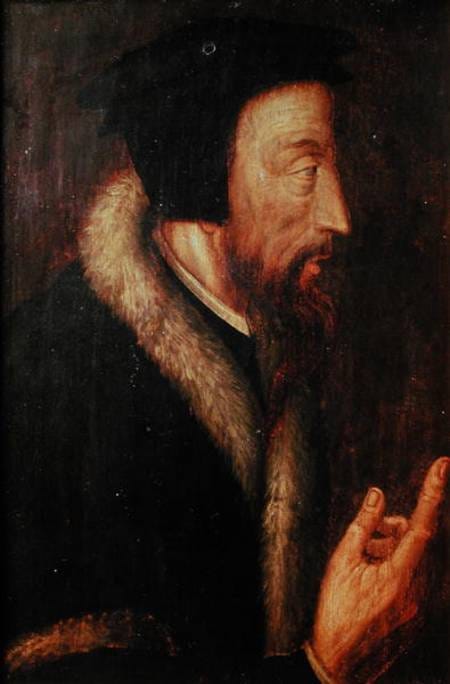John Calvin’s Brief Definition of Christianity

In studying Paul’s epistles to the Thessalonians, John Calvin sheds light on the basics of Christianity. In Calvin’s commentary on 1–2 Thessalonians, he makes a few statements that capture what he believes should be the driving force in the Christian life. Significantly, it revolves around the triad of faith, hope, and love. While these Christian virtues are perhaps best remembered from Paul’s description in 1 Corinthians 13, they are found elsewhere in the New Testament, notably in 1 Thessalonians. Since 1 Thessalonians is considered Paul’s first letter, we may be seeing some of his theological emphases in seminal form here.
Calvin derives what he calls “a brief definition of Christianity” from 1 Thessalonians 1:2–3, which reads,
We give thanks to God always for all of you, constantly mentioning you in our prayers, remembering before our God and Father your work of faith and labor of love and steadfastness of hope in our Lord Jesus Christ.
Reflecting on this passage, Calvin gives his “brief definition” as follows:
It is a faith that is living and full of vigor, so that it spares no labor when assistance is to be given to one’s neighbors. On the contrary, all the pious employ themselves diligently in offices of love and lay out their efforts so that, intent upon the hope of the manifestation of Christ, they despise everything else and, armed with endurance, rise above the wearisomeness of length of time as well as above all the temptations of the world.[1]
Calvin sees Christianity as revolving around the three classic Christian virtues of faith, hope, and love. These virtues constitute the core of what makes up the Christian faith.
Later in his commentary, Calvin reflects on 1 Thessalonians 3:6, specifically Timothy’s report of the Thessalonians’ “faith and love.” Again, Calvin detects a shorthand here for what should mark Christian living:
This form of expression should be carefully observed because of the frequency with which Paul uses it. In these two words he comprehends briefly the sum of true piety. Hence all who aim at this twofold mark, as long as they do so, will not fall into error. All others wander miserably.[2]
He continues this stream of thought in subsequent verses, particularly 1 Thessalonians 3:12, where he prays, “May the Lord make you increase and abound in love for one another and for all, as we do for you.” Calvin notes, “From this we learn what the perfection of the Christian life consists of—love and pure holiness of heart, flowing from faith.”[3]
In another place, Calvin returns to this theme by considering the armor of the Christian. Paul famously discusses the Christian’s armor at length in Ephesians 6, but again, he introduces this theme in 1 Thessalonians, particularly in 5:8: “But since we belong to the day, let us be sober, having put on the breastplate of faith and love, and for a helmet the hope of salvation.”
In his comments on this verse, Calvin highlights again the place of faith, hope, and love in the Christian life, which is “like a perpetual war” because of Satan’s nonstop attacks. While in Ephesians Paul gives a fuller listing of the pieces of a Christian’s armor, here he is “content to mention just two of them—the breastplate and the helmet.” Yet even in this case, “he omits nothing that belongs to spiritual armor, for the person who is provided with faith, love, and hope will not be unarmed in any way.”[4]
Calvin does something important for us in these reflections. He highlights the premier place of faith, hope, and love for the Christian. In these virtues we find the essence of what it means to be a Christian. And thus, the Christian benefits from reflecting on these virtues and exercising them in day-to-day life.
[1] John Calvin, 1 & 2 Thessalonians, Crossway Classic Commentaries (Wheaton, IL: Crossway, 1999), 19.
[2] Calvin, 1 & 2 Thessalonians, 39.
[3] Calvin, 1 & 2 Thessalonians, 41.
[4] Calvin, 1 & 2 Thessalonians, 54.


